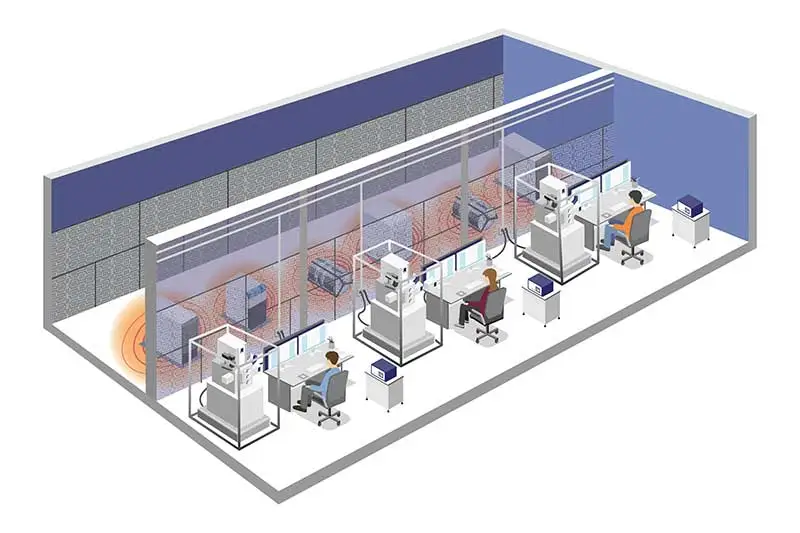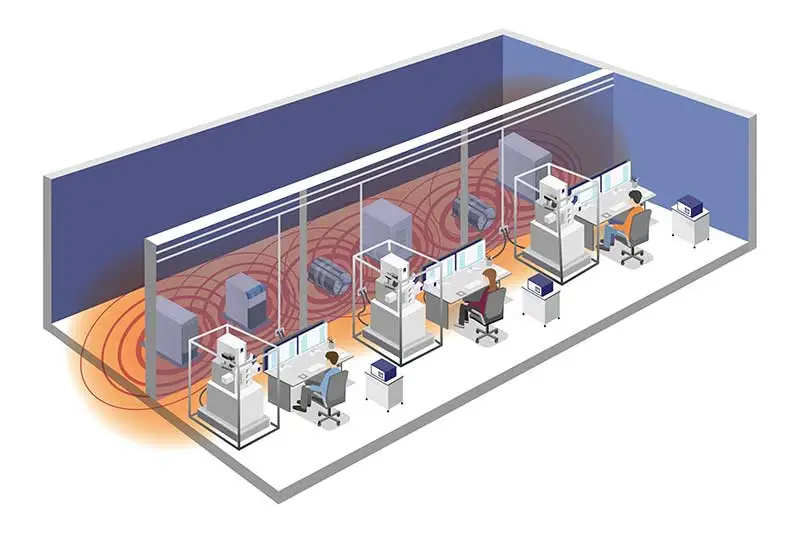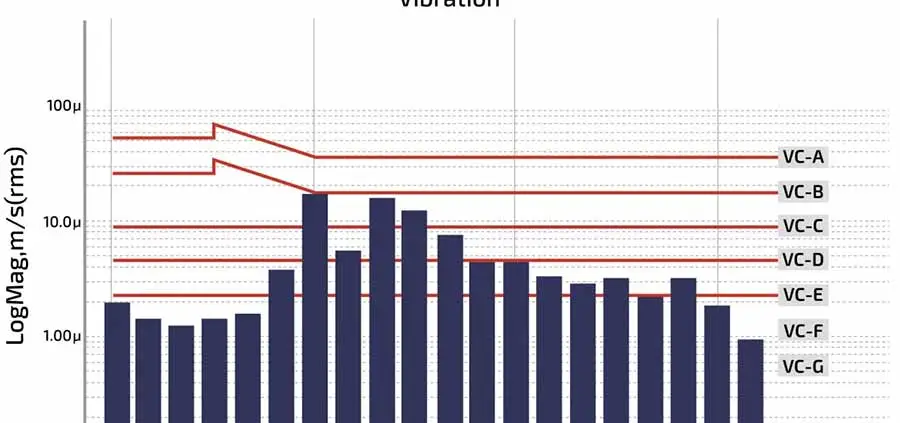Electron Microscopes on High Floors: Why VEC’s Daeil DVIA Systems Are the Only Vibration Isolation Optionwewewe
The DVIA Active Isolation System empowers researchers and professionals to use sensitive instruments in environments with significant vibration challenges. By eliminating the limitations of stiff connections and adapting to low-stiffness floors, the system ensures optimal performance for high-precision work—whether on the ground floor or the 10th floor.
Read more
VEC Reduces Noise in Electron Microscopy Lab by 75%wewewe
In a laboratory environment, noise can be a significant problem that affects personnel comfort and instrument efficiency. Recently, a customer had a chase for an electron microscopy lab that was becoming
Read more
Acoustic Noise in Laboratories: Understanding the Problem & Finding Solutionswewewe
Laboratories are places where precision and accuracy are of utmost importance. Any external factor that affects the accuracy of the results can be disastrous. One such factor that often goes unnoticed is acoustic noise.
Read more
Electron Microscope Vibration: An Increasing Issue in Today’s Laboratorieswewewe
Electron microscope vibration is an increasing concern in modern laboratories because of improving resolution and extended duration imaging. At higher resolution, external vibrations have a proportionally greater impact on image quality. Also, extended duration imaging and 3D reconstructions cause image quality to be more susceptible to incremental sources of vibration
Read more
What are VC-Curves, why are they useful, and how are they relevant?wewewe
Vibration Criteria Curves, or VC-Curves, are a standard way to report vibration. They are helpful because they allow users to compare vibration levels across locations using a standardized, widely accepted format. However, electron microscopes
Read more
Overcoming Microscopy Interference When You Can’t Find the Source of the Problemwewewe
Lawrence Berkeley National Laboratory (LBNL) is a national laboratory located in Berkeley, CA, with a focus on bringing together multidisciplinary teams of researchers to advance scientific discovery.
Read more




















